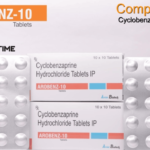Introduction
Does matcha have caffeine? Yes, matcha does contain caffeine. As a powdered form of green tea, matcha has a moderate amount of caffeine that can provide a gentle energy boost. However, the caffeine in matcha works differently compared to coffee, giving it unique effects. This article explores the caffeine content in matcha, its health benefits, how it affects the body, and why many people choose matcha for energy and focus.
What is Matcha?
Before diving into the caffeine content, let’s understand what matcha is. Matcha is a powdered green tea made from shade-grown tea leaves. Unlike regular green tea, where the leaves are steeped in water and then discarded, matcha involves consuming the whole tea leaf in powdered form. This unique preparation process gives matcha its vibrant green color, earthy flavor, and a higher concentration of nutrients compared to regular green tea.
How is Matcha Made?
To make matcha, tea plants are shaded for about three to four weeks before harvest. This shading boosts chlorophyll levels, increases amino acids, and gives matcha its rich green color. After harvesting, the leaves are dried and ground into a fine powder, ready to be whisked into hot water for a delicious, nutritious drink.
Does Matcha Have Caffeine? Understanding the Caffeine Content in Matcha
Does matcha have caffeine? Absolutely, but the amount may vary. A typical serving of matcha (about one teaspoon or two grams) contains around 60-70 milligrams of caffeine. This is less caffeine than a cup of coffee, which can contain anywhere from 95 to 200 milligrams per serving, depending on the brew strength and type of coffee.
Why Does Matcha Have Caffeine?
Matcha has caffeine because it’s made from Camellia sinensis, the same plant as black and green tea, which naturally contains caffeine. The shading process used to grow matcha increases the caffeine content, making it a moderate but powerful caffeine source.
How Does Matcha’s Caffeine Work?
The caffeine in matcha affects the body differently than coffee. Matcha’s caffeine is often described as providing a “calm energy” because it’s released slowly into the body. This slow release is due to an amino acid in matcha called L-theanine.
L-Theanine and Its Effects
L-theanine promotes relaxation and calmness without drowsiness, making matcha’s caffeine effect smoother and longer-lasting. Instead of a sudden energy spike, matcha provides sustained energy, mental clarity, and focus over several hours. This balanced effect is why matcha is a favorite for people seeking alertness without the jitters or crash often associated with coffee.
Matcha vs. Coffee: A Caffeine Comparison
Does matcha have caffeine, and how does it compare to coffee? While both matcha and coffee have caffeine, the experience of consuming each beverage differs significantly.
- Caffeine Levels: Matcha has about 60-70 mg per serving, while coffee ranges from 95 to 200 mg.
- Energy Experience: Coffee provides a quick boost, which can lead to a crash later. Matcha’s energy boost is gradual, thanks to L-theanine.
- Mental Focus: Many people find matcha helps with focus and concentration without the jittery feeling coffee sometimes causes.
Why Choose Matcha Over Coffee?
Matcha’s unique combination of caffeine and L-theanine makes it a great choice for those who want to stay alert and focused without feeling anxious. It’s also ideal for those looking to reduce their caffeine intake without eliminating it altogether.
Health Benefits of Matcha’s Caffeine Content
Does matcha have caffeine that provides any health benefits? Yes, matcha’s caffeine, combined with its high antioxidant content, can offer multiple health benefits:
- Enhanced Focus and Alertness
The caffeine in matcha can improve focus and mental clarity, especially when combined with L-theanine. It’s popular among students, professionals, and anyone needing concentration for long periods. - Sustained Energy Levels
Matcha provides sustained energy over several hours, making it an ideal drink for people with busy schedules. - Rich in Antioxidants
Matcha is high in antioxidants, particularly catechins like EGCG, which help protect cells and reduce oxidative stress. Regular consumption of matcha can support overall health and reduce the risk of chronic illnesses. - Promotes Calmness and Reduces Stress
The L-theanine in matcha helps promote relaxation and reduce stress, creating a balanced mental state even with caffeine intake. - Boosts Metabolism and Supports Weight Loss
The caffeine in matcha, along with other compounds, may help boost metabolism, aiding weight management. Studies suggest that caffeine and catechins can enhance fat oxidation, making matcha a popular choice for those looking to lose weight.
How Much Caffeine is in Matcha Compared to Other Teas?
Does matcha have caffeine levels that differ from other teas? Yes, matcha has more caffeine than regular green tea but less than black tea.
- Green Tea: Approximately 30 mg per cup
- Matcha: 60-70 mg per serving
- Black Tea: Around 47-90 mg per cup
The higher caffeine content in matcha is due to consuming the whole leaf, which concentrates caffeine and nutrients.
Is Matcha’s Caffeine Safe for Everyone?
Does matcha have caffeine that is safe for everyone? Generally, matcha is safe for most people in moderate amounts. However, it may not be suitable for those sensitive to caffeine, as even its lower caffeine content can lead to symptoms like restlessness or insomnia if consumed in excess.
Recommended Daily Intake
Experts suggest limiting caffeine intake to 400 mg per day for healthy adults. This means you can safely enjoy several servings of matcha daily without exceeding the recommended limit. However, if you’re new to matcha or caffeine-sensitive, start with smaller amounts and monitor how your body responds.
Tips for Reducing Caffeine Intake with Matcha
If you’re looking to reduce your caffeine intake, matcha can still be an option. Here are some ways to enjoy matcha with lower caffeine:
- Use Less Matcha Powder
Using half a teaspoon instead of a full teaspoon will reduce the caffeine content while still providing matcha’s benefits. - Opt for Matcha Latte
Mixing matcha with milk or a dairy alternative can dilute the caffeine per serving, making it a milder option. - Enjoy Decaffeinated Matcha
Some companies offer decaffeinated matcha for those who want to enjoy the taste without caffeine.
How to Make Matcha for the Best Caffeine Experience
Does matcha have caffeine that can be adjusted based on preparation? Yes, the caffeine content in your matcha drink can vary depending on the preparation method.
Traditional Matcha Preparation
For a classic matcha experience, whisk one teaspoon of matcha powder with a small amount of hot (not boiling) water until frothy. This traditional preparation gives you the full flavor and benefits of matcha, including caffeine and L-theanine.
Matcha Latte Recipe
For a milder matcha drink, prepare a matcha latte. Mix one teaspoon of matcha powder with a small amount of hot water, then add steamed milk or a milk alternative. A matcha latte offers a softer taste and a slightly lower caffeine effect, perfect for those who want a gentler drink.

FAQs
1. Does matcha have caffeine that can replace my morning coffee?
Yes, matcha has caffeine and can be a great coffee alternative. Its balanced energy and focus make it ideal for those seeking a gentle caffeine boost.
2. Can I drink matcha every day?
Yes, you can enjoy matcha daily. Its moderate caffeine and high antioxidant levels make it a healthy addition to your routine.
3. Does matcha have caffeine that affects sleep?
Matcha’s caffeine may impact sleep if consumed in the evening. Try to enjoy it in the morning or early afternoon to avoid disrupting sleep.
4. Is matcha safe for pregnant women?
Moderate caffeine intake is generally safe during pregnancy, but it’s best to consult a doctor. Matcha has caffeine, so pregnant women should consume it mindfully.
5. Does matcha help with weight loss?
Yes, matcha’s caffeine and antioxidants can support metabolism and weight loss efforts, especially when combined with a healthy diet and exercise.
Conclusion
Does matcha have caffeine that fits into your lifestyle? Matcha provides a moderate amount of caffeine, combined with L-theanine, offering a balanced energy boost without the jitters. It’s a versatile drink that can be enjoyed in various forms, from traditional tea to lattes. With its numerous health benefits and gentle energy, matcha can be an excellent choice for those seeking a steady, focused caffeine source.









